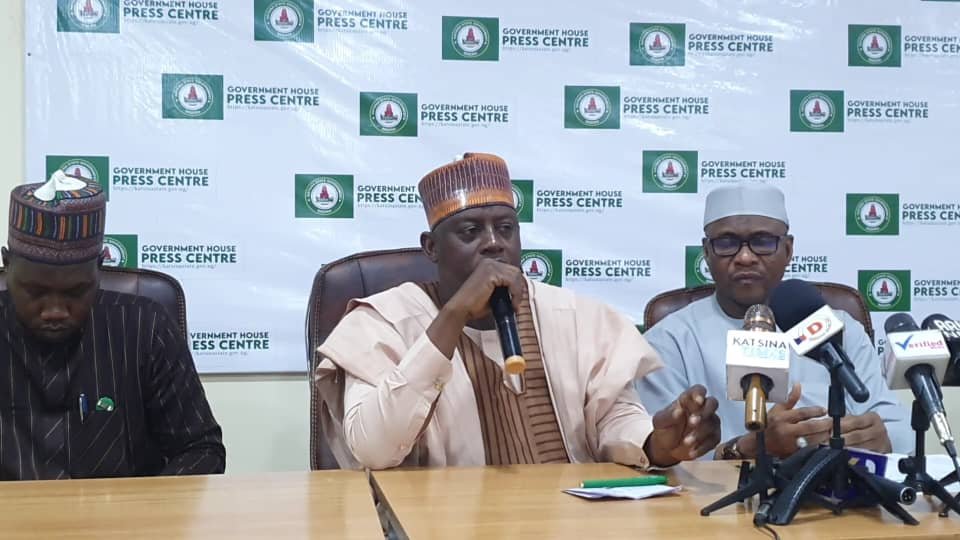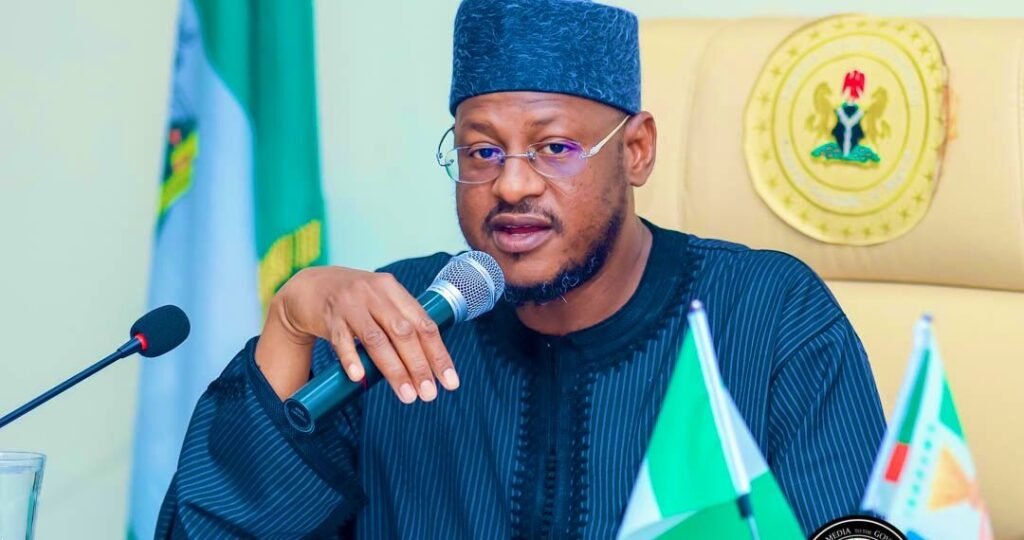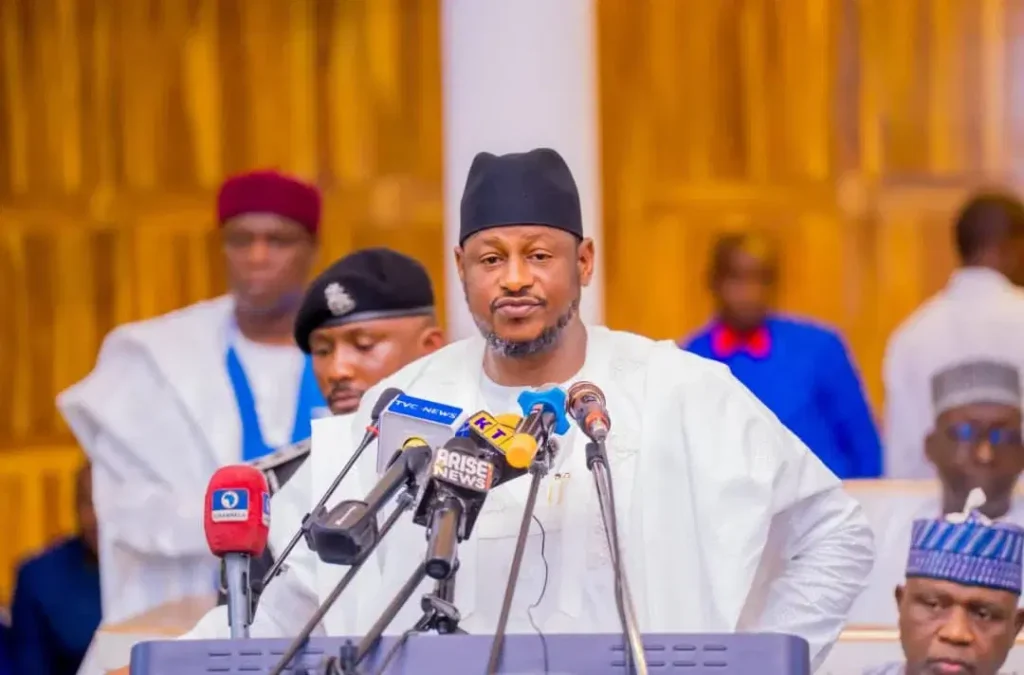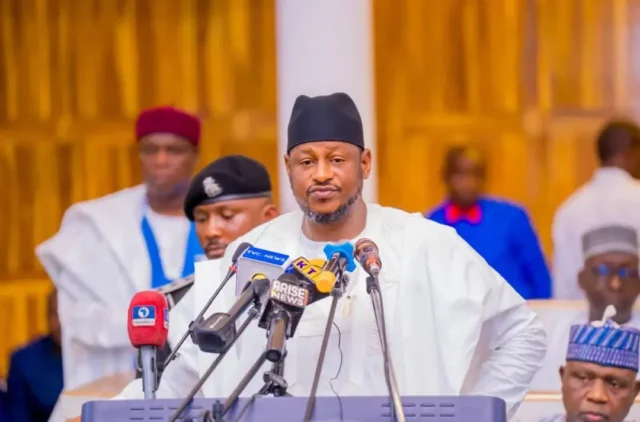In a significant development for public policy in northern Nigeria, the Katsina State Government has placed education at the very forefront of its 2026 budget proposal. The state is set to spend N156.3 billion on education — the highest single-sector allocation in the N897.8 billion draft budget tabled earlier this week.
The budget, which carries the theme “Building Your Future III”, reflects a roughly 30 percent increase over the previous year’s estimate, signalling the administration’s intent to scale up investment across key public services.
At a press briefing, the Commissioner for Budget and Economic Planning, Malik Anas, confirmed that education accounts for approximately 17.14 per cent of the total budget — a clear signal that learning and human capital development are now topping the policy agenda in Katsina.

Table of Contents
Breakdown of the Big Number: Education and What It Covers
Recurrent versus capital, and how the sector will benefit
Under the proposal, the N156.3 billion earmarked for education will cover both basic and secondary education via the Katsina State Ministry of Basic and Secondary Education, as well as the tertiary institutions within the state.
The broader budget reveals that out of the N897.8 billion, around N730.1 billion (81.23 per cent) is dedicated to capital expenditure, with the remaining N167.7 billion (18.68 percent) earmarked for recurrent costs such as salaries, overheads and administrative expenses.
With such a high ratio of capital allocation, the state appears intent on ramping up infrastructure, facilities and longer-term investment projects. For education, this could mean new classrooms, equipment, expansion of school buildings, and perhaps improved learning aids or technology integration.
What’s more, this comes at a time when the state’s scholarship board has already approved over N372 million for bursary payments to 24,452 continuing students. The board disclosed that a total of N637.9 million had been disbursed to 47,935 students in the 2020/2021 and 2021/2022 sessions; N544.2 million to 37,802 students in the 2021/2022 and 2022/2023 sessions; and N744.1 million to 50,438 students in the 2022/2023 and 2023/2024 sessions.

How Other Sectors Fared: Works, Agriculture, Health and More
Education leads, but other strategic sectors still gain
While education claims the top spot in the budgetary hierarchy, other major sectors also feature prominently in the 2026 proposal. The Katsina State Ministry of Works, Housing and Transport is allocated N117.1 billion (13.05 per cent). The Katsina State Ministry of Agriculture and Livestock Development receives N78.6 billion (8.76 per cent); the Katsina State Ministry of Health is proposed to get N67.5 billion (7.52 per cent); the Katsina State Ministry of Water Resources receives N62.8 billion (7.00 per cent); and the Katsina State Ministry of Environment receives N53.8 billion (6.00 per cent).
Together, these top six sectors draw more than N536.3 billion — roughly 59.74 per cent of the total budget. This shows a clear prioritisation of infrastructure, human development and essential services in the state’s fiscal planning.
The significance of front-loading education can’t be overstated. In a region where educational attainment and quality have historically lagged behind, this represents a strategic shift in priorities. Coupled with substantial investment in infrastructure and agriculture, Katsina’s government appears to be positioning itself for a phase of accelerated development.
Implications and Outlook: What This Means for Residents
From classrooms to livelihoods — the ripple effect
From a personal perspective, this is a welcome announcement. Having grown up in a region where access to schooling was often constrained by under-resourced facilities, I know firsthand how transformative a well-funded education system can be. In practical terms, the N156.3 billion allocation could translate into better-equipped schools, more teachers, improved facilities and stronger tertiary institutions — which in turn raise student morale, improve outcomes, and open livelihoods.
For parents in Katsina State, this means hope for more consistent schooling, fewer overcrowded classes and improved support for students moving into higher education or vocational training. For young adults, it may mean improved job readiness, fewer barriers to entry into tertiary colleges, and potentially more specialised scholarship opportunities (such as those for people with disabilities, as already announced) to secure niche fields of study.
On the economic front, investing heavily in education can have long-term dividends: a more skilled workforce, higher productivity, better ability to attract investment, and lower risk of social instability. Indeed, when you consider the large portion of the budget geared toward capital expenditure (81 per cent), the state is signalling deep commitment to building physical and institutional capacity, not just balancing salaries.
That said, setting aside large sums is one thing; turning them into real, measurable outcomes is another. Implementation will be key. Will the approved funds actually reach the classrooms? Will they be monitored for efficiency and transparency? Schools need maintenance, teachers need consistent pay and professional development, and students need the full gamut of supports beyond just buildings — like reliable electricity, learning materials and internet access.
On a governance level, stakeholders should ask: when will the breakdown of spending schedules be published? Will there be periodic updates on progress? Will the funds allocated for education be ring-fenced or diverted? If past trends hold, the next few months will be critical in determining whether the ambition behind the numbers becomes reality on the ground.

Conclusion
Katsina State’s 2026 budget is markedly education-centric — a bold, strategic move that places schooling and skills development at the heart of the state’s future. With N156.3 billion on the table for education, and major allocations for infrastructure, agriculture, health and environment, the administration appears ready to advance its “Building Your Future III” agenda. The next step will be delivery. For the young learners, the parents, the teachers and the wider community in Katsina, this budget offers promise — now the coming year will test whether the promise is fulfilled.
Join Our Social Media Channels:
WhatsApp: NaijaEyes
Facebook: NaijaEyes
Twitter: NaijaEyes
Instagram: NaijaEyes
TikTok: NaijaEyes
READ THE LATEST EDUCATION NEWS





